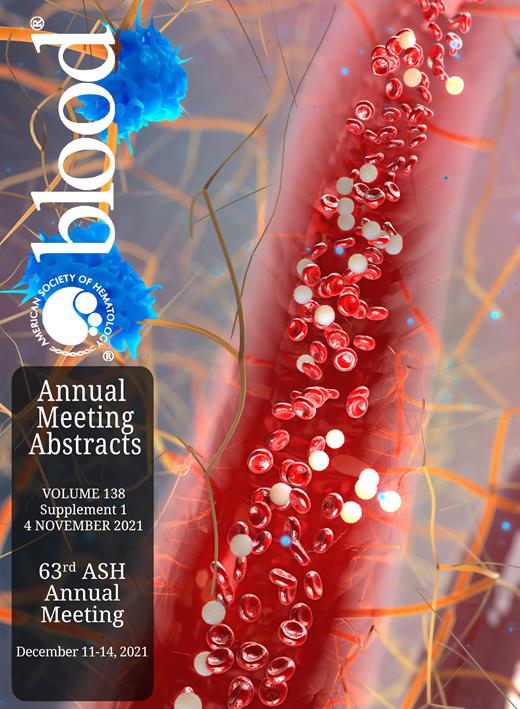Abstract
Introduction: The severity of acute clinical outcomes and mortality in hematologic malignancy (HM) patients infected by SARS-CoV-2 was exhaustively documented in the first weeks of the pandemic. A consistent increased mortality compared to non-cancer patients was observed across studies.
In this study we aimed to estimate survival in COVID-19 HM patients by type of malignancy, to describe acute and post-acute clinical outcomes, and to compare outcomes in early and later pandemic periods.
Methods: In this population-based registry study sponsored by the Madrid Society of Hematology (Asociación Madrileña de Hematología y Hemoterapia), we collected de-identified data on clinical characteristics, treatment and acute and post-acute outcomes in adult patients with hematologic malignancies and confirmed SARS-CoV-2 infection within the Madrid region of Spain. Our case series included all eligible patients admitted to 26 regional health service hospitals and 5 private healthcare centers between February 28, 2020 and February 18, 2021 with a coverage of 98% on a population of 6.6 million inhabitants. The study outcomes were all-cause mortality, severity of disease (WHO), oxygen support, ICU admission, and follow-up symptoms and signs and complications. Survival probabilities were estimated with the actuarial method and reported overall and stratified by type of malignancy and for two study periods (early cohort,-COVID-19 diagnosis from February 28 to 31 May, 2020, and later cohort, up to February 18, 2021).
Results: Of the 1408 patients reported to the HEMATO-MADRID COVID-19 registry, 1166 were included in the present analyses; 839 (72%) had a lymphoid malignancy, including 325 (28%) with non-Hodgkin lymphoma, 50 (4%) with Hodgkin lymphoma and 263 (23%) with multiple myeloma; and 327 (28%) had a myeloid malignancy, including 115 (10%) with myelodysplastic syndrome, 92 (8%) with acute myeloid leukemia (AML) and 87 (7%) with Philadelphia chromosome (Ph)-negative myeloproliferative neoplasms.
Overall COVID-19 clinical severity was classified as critical in 19% of patients, severe in 36%, moderate in 22%, and mild in 22%; 10% were admitted to an ICU; 8% were on mechanical ventilation and 19% on noninvasive ventilation. Mild disease increased between early and later period from 15% to 38% of patients; severe disease decreased from 42% to 24%, p<0.001. COVID-19 treatment with steroids increased from 38% to 59%, p<0.001.
At follow-up, 22% reported persistent symptoms related to COVID-19 at 2 months, 16% at 4 months and 14% at 6 months.
381 of 1166 (33%) patients died. Overall 30-day survival was 68%; 2 and 3-month overall survival probabilities were 56% and 53%, respectively. Survival was more favorable for patients with myeloproliferative neoplasms (82%, 69% and 65% at 30-days, 2 and 3 months, respectively) than for those with lymphoid malignancies (68%, 56% and 54%) or myelodysplastic syndrome/acute myeloid leukemia (61%, 51%, 46%), p=001.
285 (37%) patients died in the early period vs 96 (24%) in the later, p<0.001, but median (interquartile range) follow-up time was much higher in the early vs later, 45 (20-116) days vs. 26 (11-86), respectively. Overall survival was not different between periods, p=0.5 (hazard ratio [95%C], 0.93 [0.73-1.17]). In the later cohort, 30 and 60-day survival probabilities were 71% and 56% vs. 67% and 56% in the early cohort
Conclusions. A population-based registry in Spain provided strong evidence that although COVID-19 severity decreased over year 1 of the pandemic, mortality remained high, and survival was stable over time in the group of patients with hematological malignancy infected by SARS-Coc-2. A relevant proportion of the infected patients (1 in 6) referred persistent symptoms attributable to COVID-19. The improved clinical management of severe COVID-19 in non-cancer patients that followed the dissemination of evidence-based recommendations did not translate in more favorable survival in patients with hematological malignancies. Research is needed to address the specific characteristics and improve the clinical management of this vulnerable population.
Martinez-Lopez: Novartis: Consultancy, Speakers Bureau; BMS: Consultancy, Research Funding, Speakers Bureau; Janssen: Consultancy, Speakers Bureau; Incyte: Consultancy, Research Funding, Speakers Bureau; Roche: Consultancy, Research Funding, Speakers Bureau; Astellas: Research Funding, Speakers Bureau. Jiménez-Yuste: Pfizer: Consultancy, Honoraria, Research Funding; Grifols: Consultancy, Honoraria, Research Funding; CSL Behring: Consultancy, Honoraria, Research Funding; Sanofi: Consultancy, Honoraria, Research Funding; Bayer: Consultancy, Honoraria, Research Funding; NovoNordisk: Consultancy, Honoraria, Research Funding; BioMarin: Consultancy; Sobi: Consultancy, Honoraria, Research Funding; Octapharma: Consultancy, Honoraria, Research Funding; Takeda: Consultancy, Honoraria, Research Funding; F. Hoffmann-La Roche Ltd: Consultancy, Honoraria, Research Funding. Kwon: Gilead: Honoraria.

